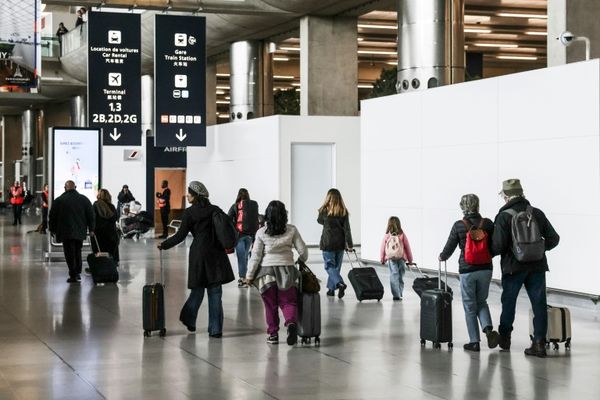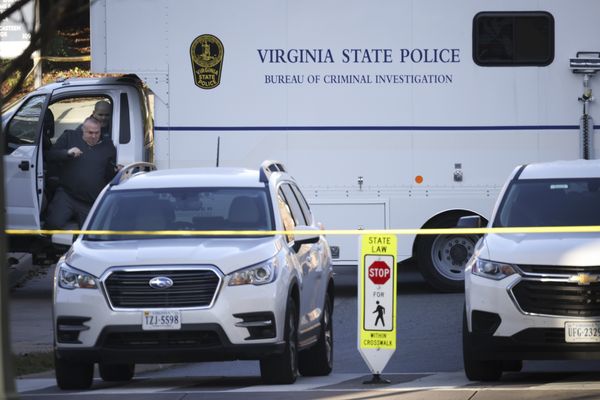
The home I grew up in had, like Michael Rosen’s, a geyser over the bath (My shirts reeked of onions; my father hated the ‘phoney Tudor windows’. That flat will always mean home, 24 December). Only my mother was brave enough to light it, as it made explosive noises when exposed to flame. That was in the bathroom, the only room in the flat without a coal fire. Our flat was on the top floor of a corner house in Kingly Street, behind Liberty in Regent Street, London, and once had clearly been the servants’ quarters of a great house.
It had high windows and many rooms, and the kitchen had a huge built-in dresser, an enormous sink and a dumb waiter. In front of the kitchen range was a large sofa, and there was a big table at which my mother and aunt sat and sewed jackets for Savile Row firms, and I later did my homework.
Coalmen had to climb the many stairs with sacks on their backs to heat the fires in the bedrooms, my mother complaining that the coal was nothing but dust and slack. I was born during the second world war. My father was away in the army; my mother had been evacuated to Oxfordshire to have me. She returned to Soho, where she had been born and grew up, like her three siblings, and found the flat in which, with one of my aunts sharing the rent, I grew up.
The wallpaper in one bedroom had pretty flowers, which I attempted to pick when I was running a high fever – the doctor tried a new drug called M&B, which sent my fever still higher, and wrote across my notes in large letters “Allergic to sulpha drugs”.
At hospital when I was nine, as a surgeon examined the curvature of my spine, he asked a nurse whether it wasn’t excessive to put more than one vest on a child, and scolded my frightened mother. I looked at the pipes running around the walls, which I knew meant central heating, and wondered why she didn’t tell him how cold our flat was in winter. There were not only the high windows, but a huge glass skylight above the landing, where all the rooms opened.
You could climb up a ladder to the roof, and my mother had stood on a chair to knock a nail in the brick wall of a neighbouring building to hang washing. When I was older and saw how near she had been to a four-storey drop, I nearly threw up.
I loved dancing, and on a night when Liberty had a staff party and the music drifted across Kingly Street, my mother took me up to the roof so that we could listen and I could dance to it. But people started looking out of the windows at me and, terribly embarrassed, I fled down the ladder again. We lived there until I was 16 and I adored it. It was home.
Alida Baxter
London
• Thank you, Michael Rosen, for your memories. Your words made me smile. I too remember my first phone number: Primrose 2309. I was born in, and never left, the lower echelons of London’s NW3 postcode area. Pinner was a faraway place. My childhood area was peppered with second world war bomb sites, which were my brothers’ playgrounds. I also recall chunky gas-fired geysers spluttering hot water, and coal stoves for heating. Winters were so cruelly cold, made worse by annual childhood chilblains.
I remember Jerry, the daily milkman pulling his milk float, and the rag and bone man with his horse and cart, bellowing out on his local rounds. It’s all a distant mind place, but the images, sounds and smells are, oddly, never forgotten.
Rita Morrison
London
• My home memory is of a Wimpey detached home in Ardrossan, where I lived as the eldest child in a family of four. While we lived there, my father gave up his job as a senior community worker to train as a Church of Scotland minister. He went by train to Glasgow University for, I think, four years, and my mother, who until that point had not worked, began a job as the secretary for a local business. Her boss’s initials were SWS, and we would call him Swiss. She walked to work every day, and sometimes we’d walk down the road to meet her coming home.
My dad being a student meant that he was around a lot – all summer, weekends and sometimes during the week when he was writing an essay. We lived on a typical 1970s estate and had complete freedom to sally forth from the detached garage on our bikes, scooters and roller skates, and even on the bogie that our grandfather had lovingly handmade – the Flying Fraser. I can see it now with its red leather padded seat and huge wheels.
We’d meet up with our friends, neighbours’ children, and to get all four of us home at bedtime was a huge chore for our parents. Our dad joked about buying a klaxon in an attempt to summon us. At the edge of our estate was a burn, and we’d spend vast amounts of time fishing for tiddlers, and hours jumping the burn from its banks.
On the other edge, for a few years, was another estate where new homes were being built, and this lured us to explore the sand piles, brick foundations and drainage pipes. At the corner of the estate lay the start of the “farm” road, where each summer we’d play with hay bales, guddle in the river, cut off the seedheads of kings and queens, and pick blackberries in the autumn. Thank you, Michael Rosen, for your lovely memories, as they’ve triggered mine and made me realise how lucky we were.
Shona Davidson
Inverness
• I enjoyed the moving piece by Michael Rosen. I could empathise, since I too came from a minority background, only somewhat the mirror image. The Free Presbyterians in the Isle of Lewis did not celebrate Christmas, believing (correctly) that it was a pagan festival and not mandated in the Bible – the sole arbiter and fount of behaviour and belief. We, on the other hand, were Church of Scotland, a less rigorous faith, and did.
In the late 1950s and early 1960s, the economy was still rebuilding after the second world war, and money was short (as were toys). My parents were a bit better-off, so my toys were a bit more adventurous. Ah, my first (and subsequent) Lego kit. How it has evolved, but still the best for the imagination. Airfix kits. And the obligatory selection box – and the tangerine at the bottom of the sock.
Not so much fun to the childish eye, but well-remembered with gratitude in later life: the classics. Marryat, Dickens and the occasional semi-religious fiction to uplift one.
The dish I remember with least affection was sheep’s head. Like Rosen, I look back on these days with great affection. And wonder, as I never did then, how many children of all faiths and none will be able to do likewise. Oh: our telephone number was Garrabost 203.
Norman Mackenzie
Edinburgh
• Michael Rosen’s reference to “a metal tube with holes on it that fired out blue flames”, used to light a coke fire, brought tears to my eyes. My mother (already widowed by 1952, with three young children to bring up) had one and called it a gas poker. It lit our coal fires until she was able to replace them with oil-fired central heating in the 1960s. She would have loved this article. I have shared it with my brother and sister too.
Penelope Clark
Oxford
• Do you have a photograph you’d like to share with Guardian readers? If so, please click here to upload it. A selection will be published in our Readers’ best photographs galleries and in the print edition on Saturdays.







